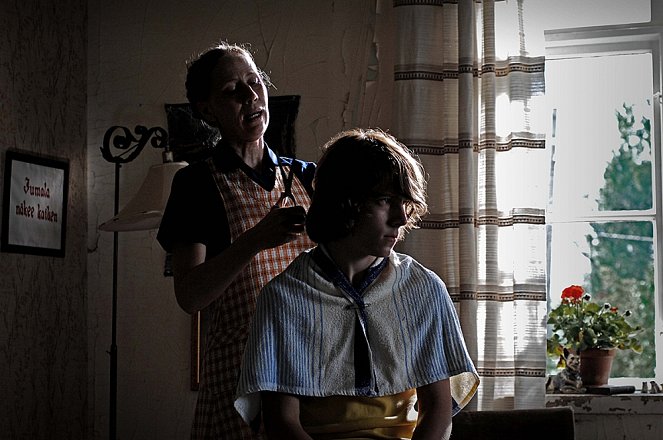Ohjaus:
Dome KarukoskiKuvaus:
Pini HellstedtSävellys:
Panu AaltioNäyttelijät:
Niilo Syväoja, Tommi Korpela, Kristiina Halttu, Kati Outinen, Pertti Sveholm, Matleena Kuusniemi, Eero Milonoff, Marjut Maristo, Roope Karisto (lisää)Suoratoistopalvelut (2)
Juonikuvaukset(1)
Tarinan keskiössä on traagisen lapsuuskokemuksen ahdistama Juhani (Niilo Syväoja), joka päätyy kuuden vuoden sijaiskoti- ja laitoskierteen jälkeen Saaressa sijaitsevaan poikakotiin. Saarella vallitsevat omat lakinsa ja sääntönsä, jotka on laatinut ja joita soveltaa kovalla kädellä Olavi Harjula (Tommi Korpela). Seitsemän pojan ja Harjulan lisäksi Saaressa asuu vain Harjulan vaimo (Kristiina Halttu) ja pariskunnan kaksi tytärtä (Marjut Maristo ja Edit Viljamaa) sekä Tyyne (Kati Outinen), joka huolehtii Saaren eläimistä ja ruokahuollosta. Saaren eristäytynyt yhteisö on kuin oma kokonainen maailmansa. Elokuva pakottaa katsojan kysymään itseltään, kuinka kauan ihmisen tarvitsee maksaa menneisyyden teoistaan? Milloin voi antaa itselleen anteeksi ja vapautua? Vai voiko milloinkaan? Ja pitääkö maksaa myös muista kuin omista teoistaan? (Nordisk Film Fin.)
(lisää)Arvostelut (2)
The Norse and their classic drama of male children's institutions, but compared to the competition I found this the weakest. King of Devil's Island is definitely unsurpassed. I more or less agree with another review, the asylum isn't that scary as a place that everyone wants to escape from, and a lot was spared with the bullying too. These films are supposed to be gritty, uncomfortable and atmospherically dense and I found that very lacking here. It's good for one viewing, but the Norse have come up with several similar and grittier genre films. Story****, Action>No, Humor>No, Violence>No, Entertainment***, Music***, Visuals***, Atmosphere***, Suspense***. 6/10.
()
The Home of Dark Butterflies is a psychological drama that takes place in the closed community of a children's home on a small island where problematic boys who are unmanageable in foster families are sent. The film is characterized by a cold, raw Nordic mood, which is emphasized by well-chosen music and especially by the camera capturing the gloomy landscape with a dilapidated building, evoking a feeling of despair, sadness, and self-denial in advance. The colors are tuned to gray and brown, and there are as few light tones as there is love among the community members. The performances and direction are the strengths of the film. Only the flashbacks from Juhani's childhood are a bit confusing, and the director and screenwriter are playing with their audience, keeping the causes of Juhani's traumas and current attitudes to themselves until the end. Overall impression: 75%. It may not be a groundbreaking film, and it lacks catharsis at the end, but it is definitely worth seeing.
()

